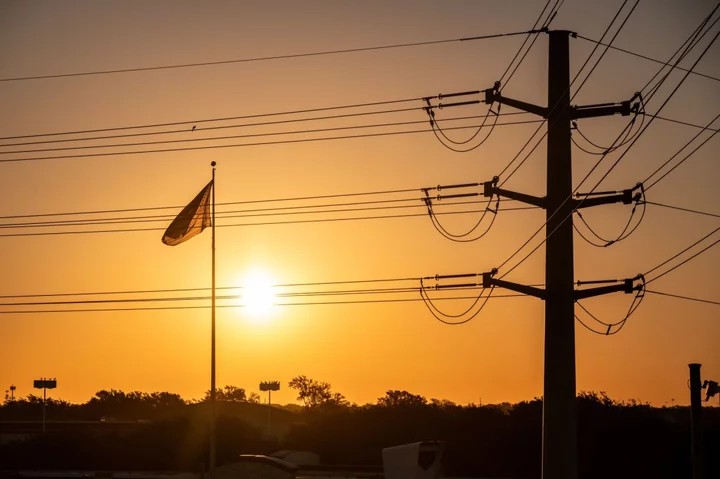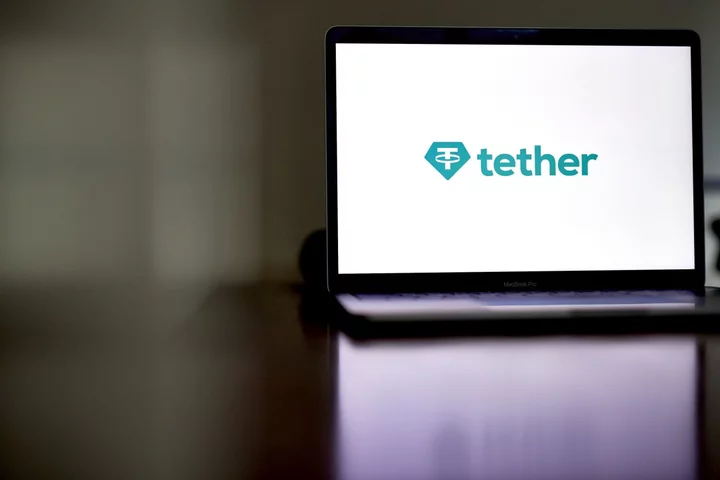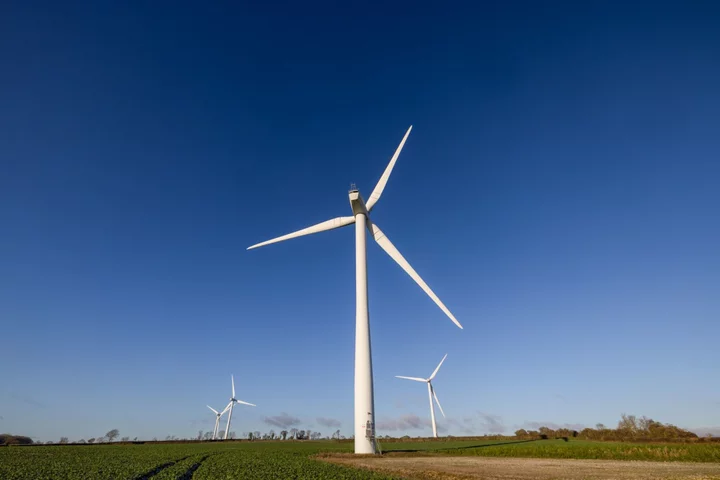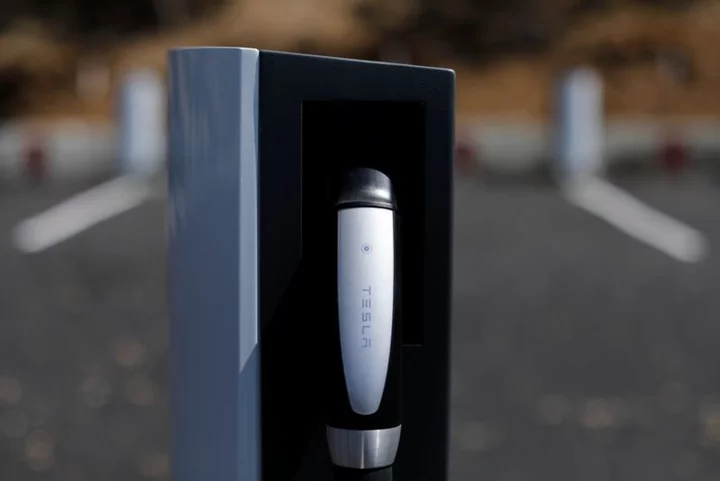It’s November 2021, Boris Johnson is the prime minister of the UK, and he’s making a speech to COP26, the global climate diplomacy meeting being held in Glasgow.
“If we don’t get serious about climate change today, it will be too late for our children to do so tomorrow,” he tells the audience of global leaders.
That was arguably the moment when Britain’s international climate influence peaked, though much of the work was done long before Johnson entered office. The UK was the first country to set legally binding emissions targets — through the Climate Change Act passed by the Labour government in 2008 — and cut its emissions more quickly than any other rich nation. And its leadership at home translated into influence abroad — its own progress phasing out coal from the electricity grid enabled it to push other countries to do the same, leading to pledges at COP26 to shift away from the dirtiest fossil fuel.
Now, 18 months on and two prime ministers later, the UK is grappling with new challenges that touch directly on people’s lives – how they get around and how they heat their homes. Last week an election in London’s suburbs put the spotlight on a controversial clean air policy backed by the city’s Mayor Sadiq Khan, a politician from the opposition Labour Party. The parliamentary seat, predicted as a loss for the ruling Conservatives, was narrowly won by them, in a race that had been largely fought around the ‘ Ultra Low Emission Zone’ (Ulez) – a charging zone for the most polluting cars, originally covering the city center but now due to be expanded to the suburbs.
The candidates for a seat in the national parliament have no direct influence over whether Ulez goes ahead – that’s in the purview of the mayor, who is elected separately. The expansion of the zone is subject to a challenge in the courts by five Tory-run councils, with a verdict expected on Friday.
Moreover, Ulez isn’t a climate policy. But the election has led some Conservative politicians to press for rolling back their own government’s green policies, especially those designed to persuade people to be more sustainable in their day-to-day lives.
Britain is a world leader in offshore wind power, behind only China in capacity, and it has all but eliminated coal from its power grid - it provided only 1.5% of electricity last year. But the next challenge is decarbonizing everything else.
“It was always likely that this was going to be a more difficult phase of decarbonization,” says Bob Ward, policy and communications director at the Grantham Research Institute on Climate Change and the Environment. “Decarbonizing the power sector is relatively straightforward, because the consumer doesn’t really have a role to play. But now that you are also having consumers make decisions, in changes to homes and transport, the government will have to work harder to show they are doing the right thing.”
Heat pumps and electric cars are due to replace the UK’s gas boilers and petrol engines over the next decade, but both rollouts have been marred by high costs and poor communication. There are subsidies, but they are confusing and hard to access. And political rhetoric now leans toward a watering down of climate change policy. The unpopular Conservative government, facing electoral wipeout in next year’s general election, is betting that there are votes in reassuring people that things will change more slowly.
Among the policies rumored to be under threat are plans to make sure new homes are well-insulated and heated in low-carbon ways by 2025; plans to phase out new natural gas boilers in all homes from 2035; better standards for energy efficiency for privately rented homes; and a 2030 deadline for the end to sales of new petrol and diesel cars.
Prime Minister Rishi Sunak this week said he remains committed to the UK's 2050 target to reach net zero, but said he doesn't want to overburden Britons struggling in the cost of living crisis to get there.
“We’re going to do that in a proportionate and pragmatic a way that doesn’t unnecessarily give people more hassle and more costs in their lives," Sunak told reporters on Monday. "That’s not what I’m interested in and prepared to do.”
While Sunak declined to commit to the government's currently-planned ban on the sale of new petrol and diesel-only cars from 2030, both his spokesman and cabinet minister Michael Gove said it remains policy. Gove, however, did relax rules for landlords on the efficiency of homes they rent out, and promised a wider review of the way buildings are given energy ratings. The government has yet to detail any other policies that may be set for a delay or for the chop.
The hassle and extra cost that worries Sunak could be tackled with better policy, says Juliet Phillips, a senior policy adviser at the think tank E3G. Surveys consistently suggest that people actually think the government isn’t doing enough on net zero, but consumer changes need to be attractive and easy to access. “The government can't just set a target and hope the market will fix it.”
The concern about the cost of living was one factor in the Labour Party’s partial retreat from its £140 billion ($180 billion) green investment plan.
Britain has one of the slowest rates of per-capita heat pump installation in Europe, despite grants to help people with the cost. A skills shortage, supply chain issues and a lack of clear centralized communication have made it hard for people to find reliable, available suppliers. Policy decisions like bringing down the cost of electricity to match gas, and a coordinated strategy to introduce car charging to every part of Britain, would make heat pumps and electric cars more attractive. Sunak has also failed to match industrial investment programs like the US Inflation Reduction Act or the EU’s Green Deal Industrial Plan, designed to stimulate domestic clean energy industries and bring down costs.
Housing contributes 17% of UK emissions, according to analysis from the Climate Change Committee (CCC), the government’s official climate advisers, and a fifth of carbon savings in the sector between now and 2050 are expected to come from energy efficiency and low-carbon heating in private rented homes.
For a government that has said it’s set on reducing costs for ordinary people, efficiency standards are a strange policy to cut — the tougher regulations would save tenants £570 a year each, on average, according to E3G analysis. Poor insulation in Britain’s homes caused hardship last winter as natural gas prices spiked, and the government was forced to spend £40 billion subsidizing unaffordable energy bills. More broadly, the long-term cost of not reaching net zero could be double the upfront costs of acting, according to the Office for Budget Responsibility, the independent analysts of the UK’s finance.
Britain’s environmental targets are legally binding under the 2008 Climate Change Act, which sets five-year carbon budgets for emissions. The UK was already behind on progress before this latest backtrack. A successful court case brought last year by campaign groups forced the government to revise its net zero strategy. It’s still lacking around 15% of the cuts needed to meet the requirements of the fifth carbon budget, which covers 2028-2032, according to analysis by the Green Alliance think tank.
More backtracking would mean more legal action, says Jennine Walker, legal manager at the Good Law Project, which was one of the groups involved in previous cases. “A further watering down of the strategy could mean the Government ends up back in court and forced, once again, to come up with a plan that is fit for purpose. Running away from the climate catastrophe only means that we end up wasting precious time.”









